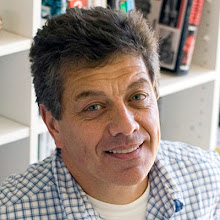
Actor Will Geer (William Aughe Ghere), who died in 1978, was a member of the American Communist party. He was blacklisted in the 1950s for refusing to testify before the House Committee on Un-American Activities. He had had a Masters degree in botany and was able to survive by creating Will Geer Theatricum Botanicum in Topanga, California – a combination of botanical gardens and an outdoors stage theater.
The theater still exists. On August 28, 2009, my friend and I went there to see their version of Chekhov’s Cherry Orchard. What an experience! You drive up the narrow winding Topanga Canyon Boulevard feeling completely lost. Your GPS gives you conflicting signals. You stop at a strange but charming place (a restaurant? a private club? a community center?) and ask for directions. People invite you to join them at their tables. “You are very close,” they say, “another mile up the road. You’ll see a lot of cars parked on the shoulder.”
So, here you are. You are not in a city and not in the 21st century anymore. “How can I help you?” asks a friendly woman in a wooden shack with a sign “Box Office.” “I made a reservation online,” you reply not sure if these words have any meaning here. But you are wrong. She quickly finds your name and gives you your tickets. “Walk across this old wooden bridge,” she explains, “turn right, and you’ll see the stage.”
You walk among dimly lit exotic plants (Will Geer made sure he had every plant mentioned by Shakespeare), you pass by the snack shed, then by a table with brochures and photographs, and then you join a small crowd at the entrance to the theater. “It must be your first time here,” says a middle-aged gentleman (now that the middle-age has shifted to the 60s), looking at my friend’s white pants. “You better rent those cushions over there, just a dollar a piece. These benches are not very comfortable.”
We are sitting on the cushions in the first row of this auditorium where everything, not just the stage, looks like stage decorations. Birds are singing. Dogs are barking. Mosquitoes are buzzing. Is it all real or recorded? The woman who just gave us the cushions appears on the stage wearing a t-shirt, striped pajamas pants and flip-flops. You expect her to start something like Nina Zarechnaia’s monolog on “people, lions, eagles and partridges” but instead the woman makes a few announcements and leaves. The lights go off and the play begins.
Chekhov’s comedy (as he called it) was rewritten by Will Geer’s daughter Ellen and Heidi Helen Davis, who directed it. Ellen also plays Ranevskaia, who is renamed here Lillian Randolph Cunningham because the play now takes place in Virginia in the 1970s. Lopakhin, who in Chekhov’s play was a son of a serf, became Lawrence Poole, a descendant of black slaves. Lawrence advises Lillian to cut down the cherry orchard to lease the land to developers who would build shopping malls. The eternal student Petia Trofimov became an angry black activist Terrence Moses, who is denying being in love with Anna (one of the few characters to keep original names) played by Will Geer's granddaughter Willow. The old servant Firs, locked and forgotten in the abandoned estate, became the old black woman, a kind of Mammy from Gone With The Wind.
Surprisingly, this transplant worked, which only proves universal and timeless qualities of Chekhov’s masterpiece.

